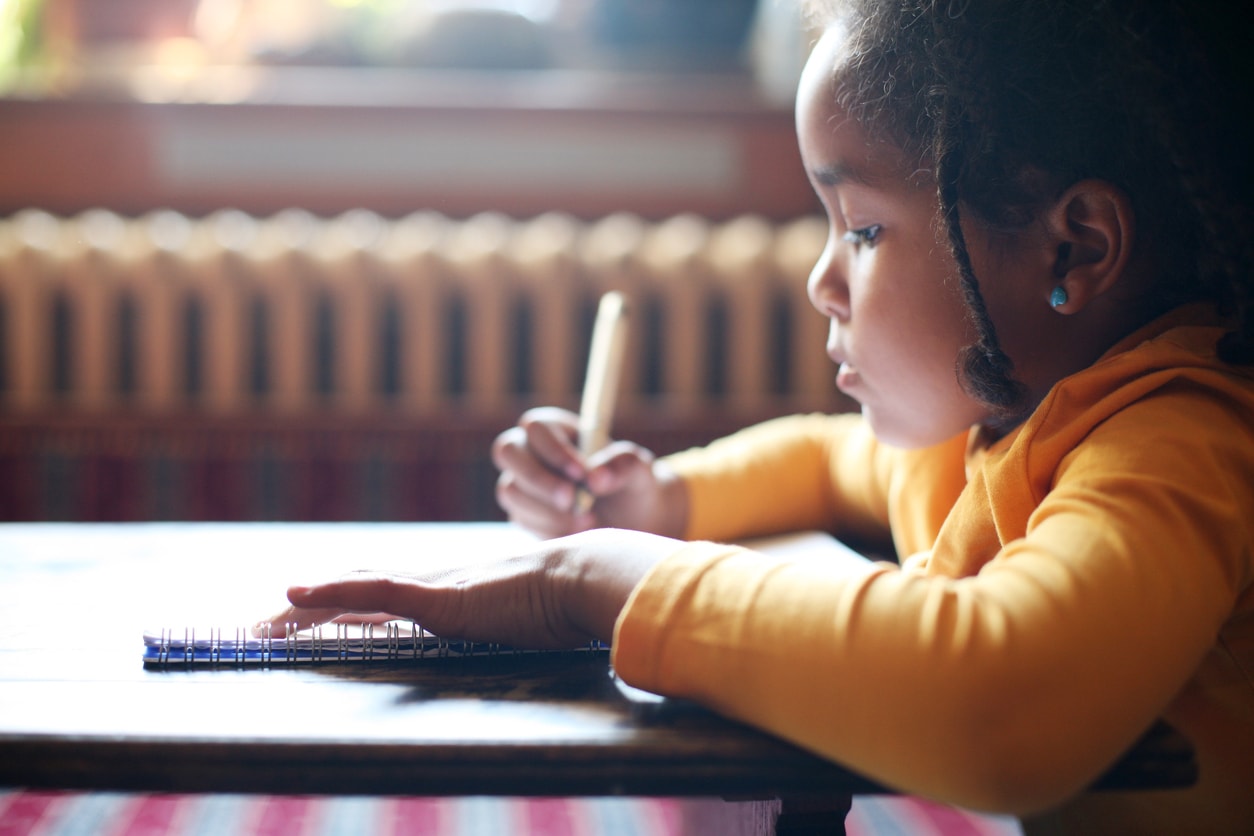When we’re getting our little ones to enter formal schooling, all we can really think about is how much we want for them to be confident, happy and successful.
Easier said than done, right? It’s one thing for us to want all these things for our kids, but knowing exactly what we need to do to get them to this point is a whole other ballgame.
Nowadays, it seems like all we’re hearing about is how stressed out American students are — and that that stress is starting to spread to our youngest academics. Case in point: preschools are scrambling to ensure that their 4- and 5-year-olds will be able to tackle the higher level reading and math skills expected of them in kindergarten.
For many parents, one main question comes up: Is all this pressure and rushing actually necessary? They’re 4- and 5-years-old!
According to new research out of Michigan State University, the answer is a big ol’ “Nope.”
We’ve been focusing on the wrong skills
Published in the November 2016 edition of the journal Development Psychology, the study found that this overemphasis on early scholastic achievement might be missing the mark completely.
Instead, researchers argue that what these children really need to develop is a skill called “self-regulation.” This skill refers to a child’s ability to follow directions, sit still, listen, take turns, share and minimize outbursts and disruptions. And according to the researchers, children who lagged behind most in the area of self-regulation had the most trouble adjusting to kindergarten.
“Such early behaviors predict academic success throughout school and even later educational attainment,” write Janelle Montroy and Ryan Bowles, who were the lead researchers of the study.
But after studying 1,400 children of diverse backgrounds, the researchers found that young children develop the ability to self-regulate at very different rates.
Montroy and Bowles report that most children they studied were gradually able to attain most of the necessary self-regulation skills for entering kindergarten, but up to 20% of the children did not. Many of these students were children whose parents had lower than average education levels — or who did not speak English at home. Additionally, the majority of these students were male.
Even more striking is the fact that these deficits affect children for years to come, even worsening as time goes on.
“There is some evidence that the children who start kindergarten with lower self-regulation not only do not catch up by first or even second grade, but in some cases may be falling even further behind,” write Montroy and Bowles.
Montroy and Bowles say that failing to develop self-regulation skills has a direct impact on academic success.
“A child with lower self-regulation in kindergarten is likely to have lower math skills throughout elementary school,” explain the researchers.
How we can help foster kids’ self-regulatory skills
So what does this all mean, and what can we do as parents to ensure that our children don’t fall behind in these areas? Thankfully, Montroy and Bowles have some good suggestions for both schools and parents to help children develop these important skills.
Advice for schools
In terms of preschool curriculum, the researchers do not propose that the push toward academics be eliminated altogether, but rather that the school emphasize the socio-emotional development of their students to a greater extent.
(Here’s an eye-opening view of how schools in Finland do just that, and how their students thrive both academically and emotionally as a result.)
Advice for parents
For all you parents out there, there are concrete steps you can take so that your children learn these vital skills.
The researchers explain that a child’s body and mind are inextricably linked, so making sure they eat well and get enough sleep will ensure that they are in tip-top shape to hone their self-regulation skills at school.
Routines are important too. Having consistent bedtimes, rest-times, and mealtimes help train a young child to self-regulate.
Finally, practice makes perfect, and the researchers suggest that parents can work with their kids at home on the developmental skills they need to thrive in school. For example, they suggest teaching your child to listen carefully to instructions, take directions and minimize disruptions. This can even be done through popular childhood games like “Red Light, Green Light,” and “Freeze,” which are rule-based games that offer playful ways to teach a child self-control.
Of course, throughout this all, it’s important to remember that kids are just kids, and they develop at different rates and in their own ways. While we can do all we can to ensure that they become successful, self-sufficient children, we also need to be patient with them as they blossom and grow.





